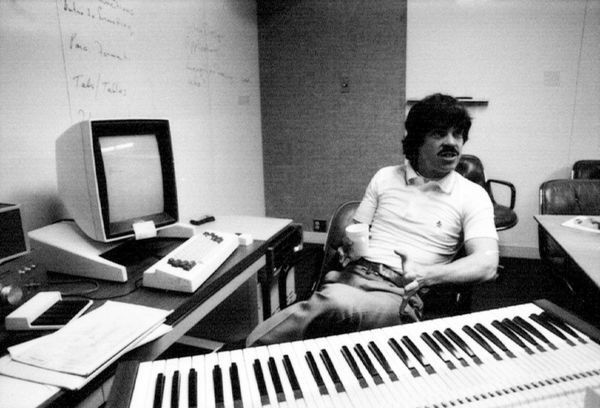Visions, not Goals

#019
What computer pioneer, Alan Kay, calls "The power of the context" or "Point of view is worth 80 IQ points" is the idea that your social and intellectual environment exerts an invisible yet powerful influence on your thoughts and dreams.
When you infuse the right conditions and context into a group of talented creatives—whether artists, authors, philosophers, or engineers—you get progress in leaps and bounds.
In art, the French impressionists regularly painted together in the countryside and held discussions in the Café Guerbois in Paris. Their collaboration created an entire movement that would shape the aesthetic sensibilities for generations to come.
In literature, the Inklings held regular readings and discussions at The Eagle and Child pub at Oxford. These discussions would later inform and shape the magical worlds of Narnia and Middle Earth.
In philosophy, the Vienna Circle regularly met at the Mathematical Seminar at the University of Vienna. The ideas developed in this seminar room continue to hold immense sway in philosophy to this day.
Returning to the story of Kay, such powerful conditions also existed at ARPA/PARC in the 60s, where many ideas and technologies foundational to personal computing and to the internet were born. Many of these ideas were, and are still "ahead of its time", such that many technologists today still look to them for inspiration.
What was in the water at ARPA/PARC? What was special about their 'context' that made it extremely productive and fruitful?
As difficult as it was to pin down the principles that made ARPA/PARC so successful, Kay was able to conjecture at some key principles, many of them thought-provoking and well worth reading. But what resonated most vividly was the first principle: "Visions not goals".
"...A great vision acts like a magnetic field from the future that aligns all the little iron particle artists to point to “North” without having to see it. They then make their own paths to the future."
For ARPA/PARC, their vision was "interactive computing as a complementary intellectual partner for people pervasively networked world-wide". It's quite a mouthful, but it did prove to be tremendously effective.
By not trying to impose specific goals on researchers, researchers were given the freedom to pursue multiple, sometimes opposing points of view. By also cultivating highly-motivated people with great ability, ARPA/PARC was able to do away with much of the oversight and mistrust that plagues many dysfunctional corporate cultures.
In this context, Kay does not disavow goals per se, but suggests they should be viewed as a by-product of a strong vision:
"The pursuit of Art always sets off plans and goals, but plans and goals don't always give rise to Art."
The necessity of a vision
In our own lives and creative endeavors, we can apply the "vision not goals" principle to align the little iron particles that are our own scattered thoughts.
I've often slipped into the trap of obsessive optimization and productivity, without careful consideration as to how I spent my time. This productivity trap, it turns out, has caught many smart people unaware. At Bell Labs, Richard Hamming observed that although many of his colleagues worked just as hard or harder than he did, they didn't have nearly as much to show for it. "The steady application of effort with a little bit more work, intelligently applied is what does it... drive, misapplied, doesn't get you anywhere."
A clear long-term vision also helps us avoid the temptation of chasing after others' desires. When you don't know what you'd like to achieve and how you might go about achieving it, your behavior will be greatly influenced by the desires of those around you. The entrepreneur and investor, Peter Thiel, points to business schools as a classic example of this mimetic behavior:
"...They [business schools] end up attracting students who are very extroverted and have very low conviction, and they put them in this hothouse environment for a few years—at the end of which, a large number of people go into whatever was the last trendy thing to do. They’ve done studies at Harvard Business School where they’ve found that they largest cohort always went into the wrong field. So in 1989, they all went to work for Michael Milken, a year or two before he went to jail. They were never interested in Silicon Valley expect for 1999, 2000. The last decade their interest was housing and private equity.”
The antidote to mimetic behavior is to live by your own vision. Developing a compelling vision takes hard work—perhaps why it's often easier to outsource this decision to your role models or peer group. It involves a lot of trial and error and constant refinement. But the most important thing is that you have a vision. As the neuroscientist Ed Boyden advises, "Even if you change it every day. The act of making the plan alone is worth it. And even if you revise it often, you’re guaranteed to be learning something."